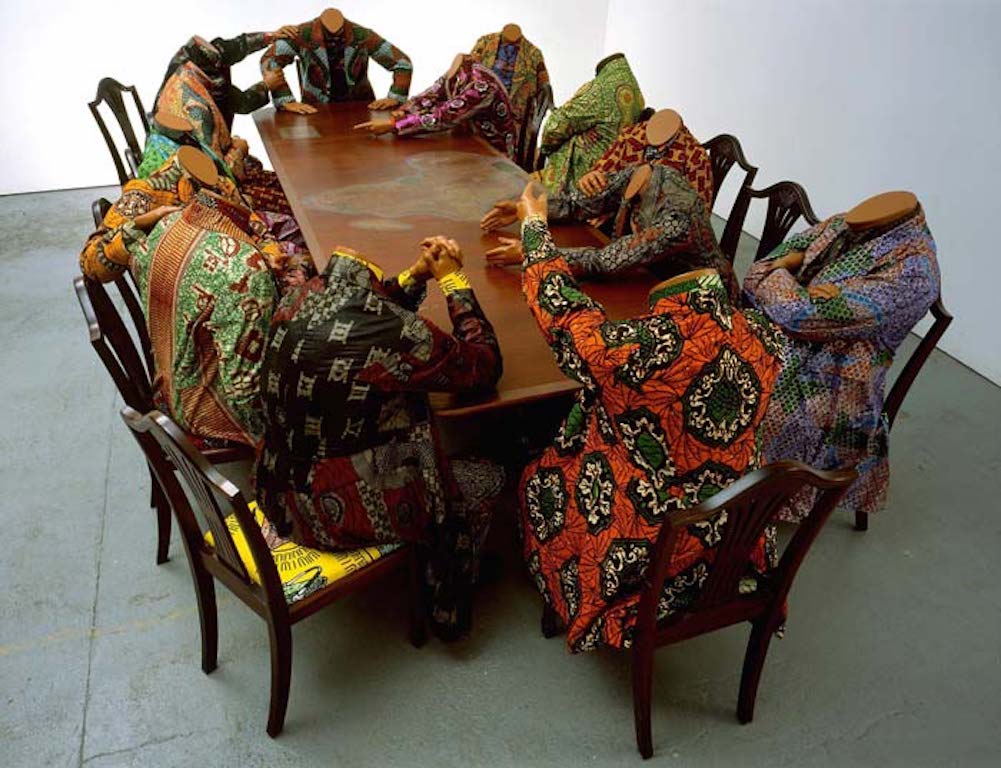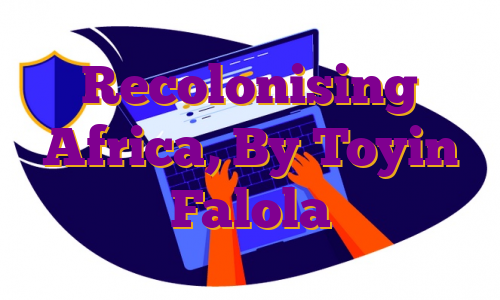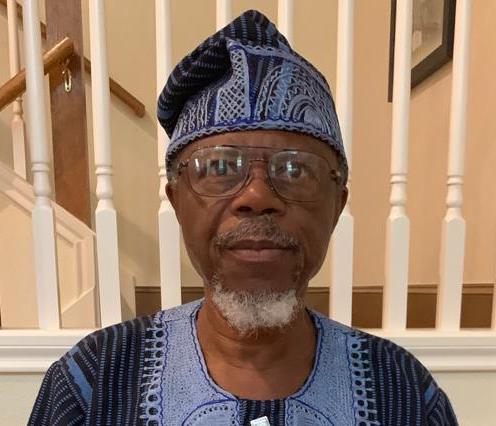

While neo-colonialist interests continue to thrive in the modern world, as world powers appear to have re-developed dominative interests in African states. This time, however, the approach seems to be a little different. Instead of a forceful take-over of these African countries, there have been subtle attempts to gain diplomatic leverage by taking advantage of economic and military disabilities, as well as similarities in central political ideology.
The nineteenth century was arguably the most intense period of global expansionist activities in modern African history. European powers took cognisance of African resources during this era and acquired them. The scramble was the formal summation of the monopolistic attempts of those countries to dominate the continent. It formally describes the phase between the European race to dominate the African continent, the Berlin conference, and the consequent creation of colonies by the same European countries in the nineteenth century. Essentially, it marked the inception of increased colonial activities and the corresponding overhaul of the pre-existing political and economic autonomy. Before these events, there were historical records of economic exchanges between European merchants and African nations and communities. However, world powers desired geopolitical influence and economic superiority due to competitive paranoia, which they could get through dominant acquisition.
At the end of the scramble, states apparatuses were established within the jurisdiction of each colonial power, with the sole purpose of serving the interests of the conquering nations. However, the twentieth century marked the uprising of various nationalistic movements, which foreshadowed and triggered the independence of many of the colony states. Most of these states attained full political autonomy due to their independence but lacked the necessary apparatuses to exist functionally without dependence on their former colonial masters and subsequently serving their interests. The foundation of this structural deficit, and the resultant dependence, was laid through the erosive indoctrination perpetrated during the phase of colonial domination. This is the concept of neo-colonialism.
While neo-colonialist interests continue to thrive in the modern world, as world powers appear to have re-developed dominative interests in African states. This time, however, the approach seems to be a little different. Instead of a forceful take-over of these African countries, there have been subtle attempts to gain diplomatic leverage by taking advantage of economic and military disabilities, as well as similarities in central political ideology. The following analysis highlights the potential interests of distinct world powers – both the capitalists in the West and the socialists to the East. They also consider some major global moves that hint at this modern scramble. Finally, the remaining ideas discuss neo-colonial structures and their roles in facilitating the modern-day scramble for domination.
First, let us consider a brief examination of the approach of the so-called socialist states – Russia and China – and their respective interests in the African continent. Russia, for example, has actively leveraged economic, military and political strategies to gain ground in certain African countries. The continuously denied Russian military support to countries like Libya and Sudan is a typical example of the state’s strategy for maintaining relevance in Africa. For instance, the Tripoli siege, the threat of the Islamic militia in 2018, and the rampaging rebel group all provided the ideal opportunity for Russia to broker strategic deals with the Libyan government. The Russian government was reported to have provided manpower support, weapons, missiles, and logistic support to the Libyan troops during each fracas.
In the case of the Sudanese government, Russia was linked to the provision of military backup for the Sudanese dictator, Omar al-Bashir, on several occasions. Of course, these are no majestic acts of charity. It is a basic diplomatic rule that such supports are transactional and that a world power like Russia would have wielded the greater bargaining power. From a critical examination, influence in Libya gives Russia considerable geopolitical influence and access to resources such as Libyan oil fields.
Kimberly Marten pointed out an example of how much power these trades afforded the Russian government in their analysis of the Wagner group and its connection to the Russian military. According to Marten, the appointment of Valery Zhakarov, a Russian, as the national security advisor to the Libyan government, was indirectly part of the price Libya had to pay. Marten also suggested that Libya’s over-reliance on Russian military forces directly compromised its sovereignty.
When examined in-depth, other subtleties like trade agreements, educational summits, diplomatic and business relations also seem to be skewed in favour of the Russian government. Apart from access to resources like oil and gold, this expansion ultimately gives the Russian state leverage over their Western rivals, that is, America… One could infer that the Russian interests do not necessarily differ from what world powers conceived in the nineteenth century: power, competitive advantage, and wealth.
Furthermore, the Russian effect on the Sudanese state and the government of Mozambique was inferred in Joseph Siegel’s analysis of Russia’s expanding influence in Africa. As part of the conclusions of his analysis, he specified that “Russia’s support of the Sudanese included the deployment of Wagner forces to support the Sudanese military while gaining access to gold mines in the west of the country.” There were also digital footprints of the Russian connection to the toppling of Bashir to maintain their interest in the Sudanese state.
When examined in-depth, other subtleties like trade agreements, educational summits, diplomatic and business relations also seem to be skewed in favour of the Russian government. Apart from access to resources like oil and gold, this expansion ultimately gives the Russian state leverage over their Western rivals, that is, America. Marshall concluded in 2011 that, “If Russia becomes established as a key power broker in Libya with unfettered naval and airbase access in the eastern Mediterranean, it is in a stronger position to threaten Europe’s southern borders and disrupt NATO’s maritime movements in times of crisis.” One could infer that the Russian interests do not necessarily differ from what world powers conceived in the nineteenth century: power, competitive advantage, and wealth.
Aside from the Russian government, the People’s Republic of China has also gained considerable influence on the modern African continent. Unlike the direct deal brokerage approach of the Russians, the Chinese are branded more as economic partners. The Chinese government is devoted to upholding the impression of a win-win economic partnership with vital African states. In 2006, Beijing established a Chinese-African policy based on mutual benefit and developmental partnerships to enforce this perception. Summarily, the policy included strategies to ensure reciprocal benefits in the economy, development, governance, and coordination areas.
Since the establishment of the policy, the Chinese government has conspicuously been involved in loan deals with major African countries like Nigeria, South Africa, the Democratic Republic of Congo, Angola, Ethiopia, and Zambia. In addition, the government has actively sponsored the revitalisation of significant service sectors in several African countries. They have been actively involved in infrastructural and scientific projects in these countries. According to the پراکسی, China invested approximately $1.6 billion in Africa in 2005 alone. By 2012, China had trade worth more than $166 billion with Africa. As evidence of further substantiation, a Chinese daily report revealed that China’s trade with Africa has increased by approximately 83 per cent since the beginning of the century.
Surprisingly, there has been no plausible cumulative record of predatory political motive against the Chinese government in its partnership with Africa. Although there are speculations about China’s possible interference in the African socio-political atmosphere, there has been no concrete report or digital footprint to back this up. References have been made to military activities in Zimbabwe and the role of the Chinese-Sudan oil transaction in the Sudanese genocide. However, there are no direct links between these situations and the interest of the Chinese in any way.
Nonetheless, despite the Chinese government’s apparent neutrality in the socio-political activities of African states, there are legible economic effects of the resource exchange programmes. There are also footprints of the Chinese influence in monopolising the resources of some African states at the expense of the nations involved. Burgess concluded in 2011 that “the Chinese off-take agreements for ferrochrome and ferromanganese and chromite and manganese ore have brought complaints from the South African stainless steel industry about a shortage of supply for local production. Stainless steel industry experts assert that Chinese companies are moving to corner the market on chromium, manganese, and vanadium.” Given the complexities of economic aid and reciprocity, one could infer that the Chinese want the same things as their counterparts – power, resources, and wealth. I agree with Paulo that “there is little doubt that access to natural resources is an important consideration in China’s new active role in the international system.”
The United States’ Libyan intervention dynamics are different and somewhat delicate…. On the surface, the aftermath intervention of the U.S. in the Libyan internal squabble seemed altruistic. Gadhafi cracked down on protests and civil demonstrations, resulting in the outbreak of civil war. However, a deeper analysis would reveal a possible non-altruistic motive behind the intervention. The United States needed to remove the major obstacle to its economic interests in Libya.
The socialist states are not the only ones implicated in these exploitative partnerships. Western powers, particularly the United States, have also played their cards to maintain their geopolitical power in Africa, while accruing economic benefits. Africa was a crucial factor in the emergence of the United States as a world power after the second world war. But due to different reasons, including the attempts made by the USSR and China, there has been a significant shift in the power balance in Africa.
The diplomatic move made by the United States during the George Bush administration was a defining moment for Africa-US relations. Although the U.S. had established relationships with different African states before Bush, it was the first obvious pointer of a resource-motivated partnership. The antecedent circumstance checks well; America had just launched an energy plan a year before this meeting. In 2002, the White House invited eleven African heads of state for meetings, incidentally many of them from countries rich in oil.
Of course, the United States adopted a Messiah-like approach to Africa. It preached the ideals of democratic liberation and presented recuse initiatives. Some notable United States’ initiatives in Africa include the U.S. AIDS relief programme, the U.S. malaria initiative, and the African Growth and Opportunity Act. The United States has also provided considerable military aid to key African states. For example, it has recently adopted military programmes to provide free arms support to major African countries like Nigeria.
While the above has been instrumental to the survival of African states, they are ultimately ploys to secure the interests of the United States in Africa and maintain its geopolitical power in the grand scheme of things. In some cases, resource payback imposed in return for foreign aid has been detrimental to African states’ independent polity and economy. However, the country with the higher bargaining power logically wins in such cases. The United States’ major detrimental involvements in Africa include the Djiboutian military intervention and the Libyan decimation in 2011. As in the case of Nelson Mandela, Gadaffi was an outspoken nationalist with communist affiliations. Of course, such an individual would be detrimental to the interests of the United States. In 2016, the United States publicly owned its involvement in his arrest and incarceration.
The United States’ Libyan intervention dynamics are different and somewhat delicate. Before this, the Libyan president had made moves to nationalise the country’s oil economy. These moves jeopardised the interests of the United States in Libya at the time. On the surface, the aftermath intervention of the U.S. in the Libyan internal squabble seemed altruistic. Gadhafi cracked down on protests and civil demonstrations, resulting in the outbreak of civil war. However, a deeper analysis would reveal a possible non-altruistic motive behind the intervention. The United States needed to remove the major obstacle to its economic interests in Libya.
Furthermore, and in the context of international law, the United States became involved in what appeared to be a domestic situation. Undoubtedly, the relationship between African states and world powers like China, Britain, America, and Russia has been presented as beneficial to developmental endeavours in Africa. However, African leaders need to wake up to the realisation of the nationalistic biases inherent in these moves. In diplomatic situations, it is only natural that a country defends its interest. These pointers should warn African states to apply caution in these situations. It is also a call to strive towards viable policies aimed at considerable self-sustenance in the coming decades. These and similar discourses must drive Pan-African relationships, if the continent intends to survive in the subsequent years.
Toyin Falola, a professor of History, University Distinguished Teaching Professor, and Jacob and Frances Sanger Mossiker Chair in the Humanities at The University of Texas at Austin, is the Bobapitan of Ibadanland.
Support PREMIUM TIMES’ journalism of integrity and credibility
Good journalism costs a lot of money. Yet only good journalism can ensure the possibility of a good society, an accountable democracy, and a transparent government.
For continued free access to the best investigative journalism in the country we ask you to consider making a modest support to this noble endeavour.
By contributing to PREMIUM TIMES, you are helping to sustain a journalism of relevance and ensuring it remains free and available to all.
Donate
TEXT AD: To advertise here . Call Willie +2347088095401…


(function() {
var _fbq = window._fbq || (window._fbq = []);
if (!_fbq.loaded) {
var fbds = document.createElement(‘script’);
fbds.async = true;
fbds.src = ‘//connect.facebook.net/en_US/fbds.js’;
var s = document.getElementsByTagName(‘script’)[0];
s.parentNode.insertBefore(fbds, s);
_fbq.loaded = true;
}
_fbq.push([‘addPixelId’, ‘756614861070731’]);
})();
window._fbq = window._fbq || [];
window._fbq.push([‘track’, ‘PixelInitialized’, {}]);
!function(f,b,e,v,n,t,s){if(f.fbq)return;n=f.fbq=function(){n.callMethod?
n.callMethod.apply(n,arguments):n.queue.push(arguments)};if(!f._fbq)f._fbq=n;
n.push=n;n.loaded=!0;n.version=’2.0′;n.queue=[];t=b.createElement(e);t.async=!0;
t.src=v;s=b.getElementsByTagName(e)[0];s.parentNode.insertBefore(t,s)}(window,
document,’script’,’https://connect.facebook.net/en_US/fbevents.js’);
(function(d, s, id) { var js, fjs = d.getElementsByTagName(s)[0]; if (d.getElementById(id)) return; js = d.createElement(s); js.id = id; js.src = ‘https://connect.facebook.net/en_GB/sdk.js#xfbml=1&appId=249643311490&version=v2.3’; fjs.parentNode.insertBefore(js, fjs); }(document, ‘script’, ‘facebook-jssdk’));


